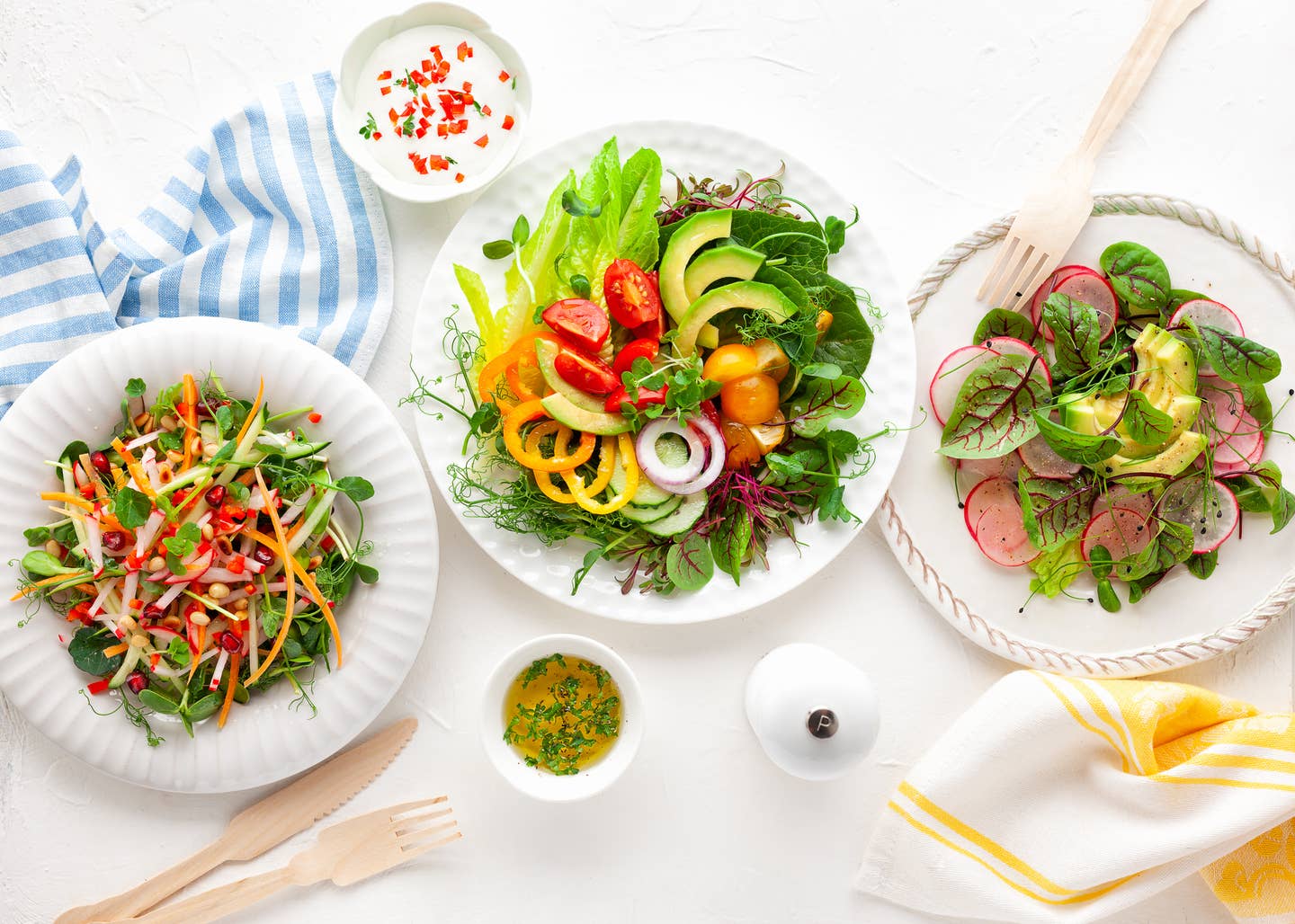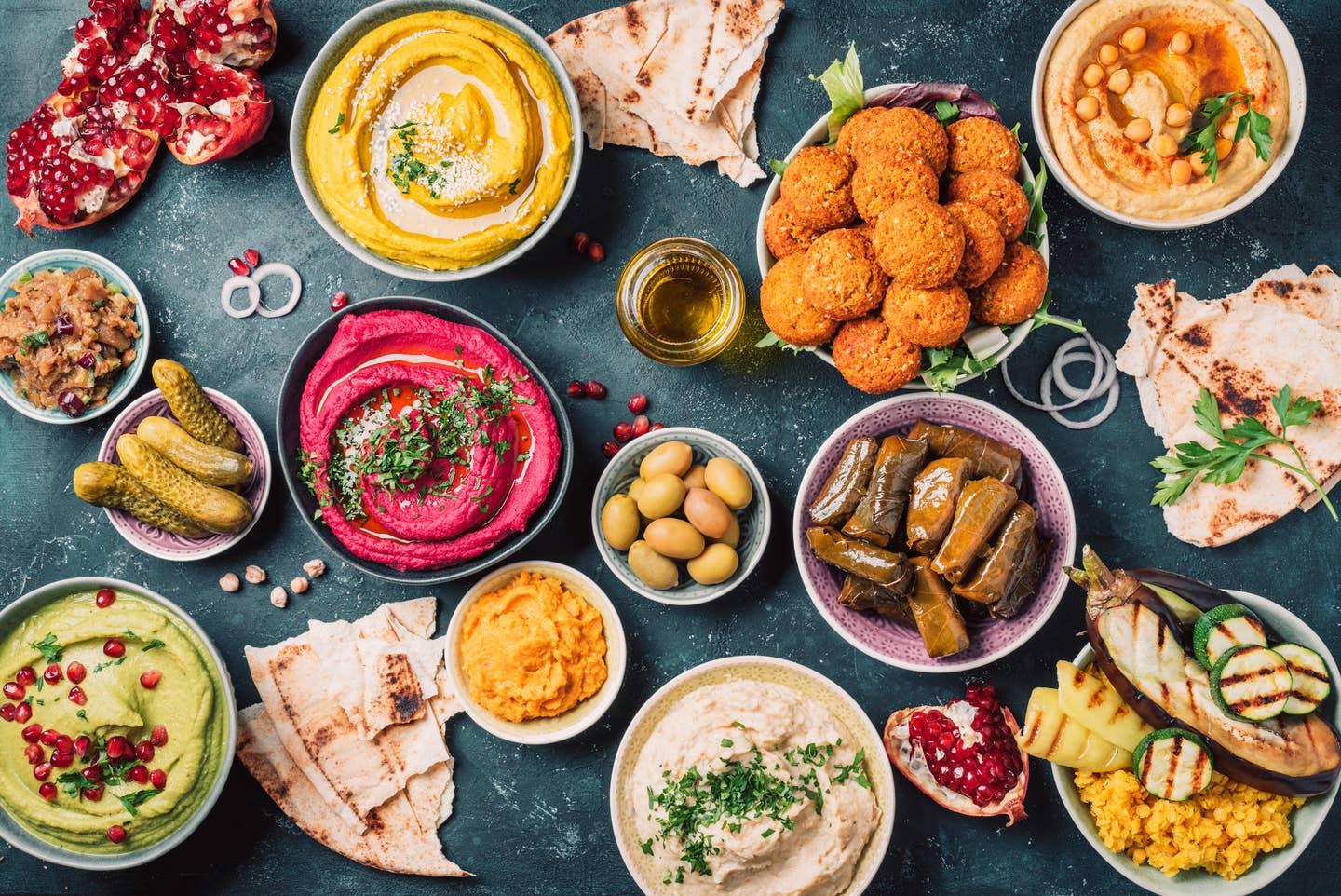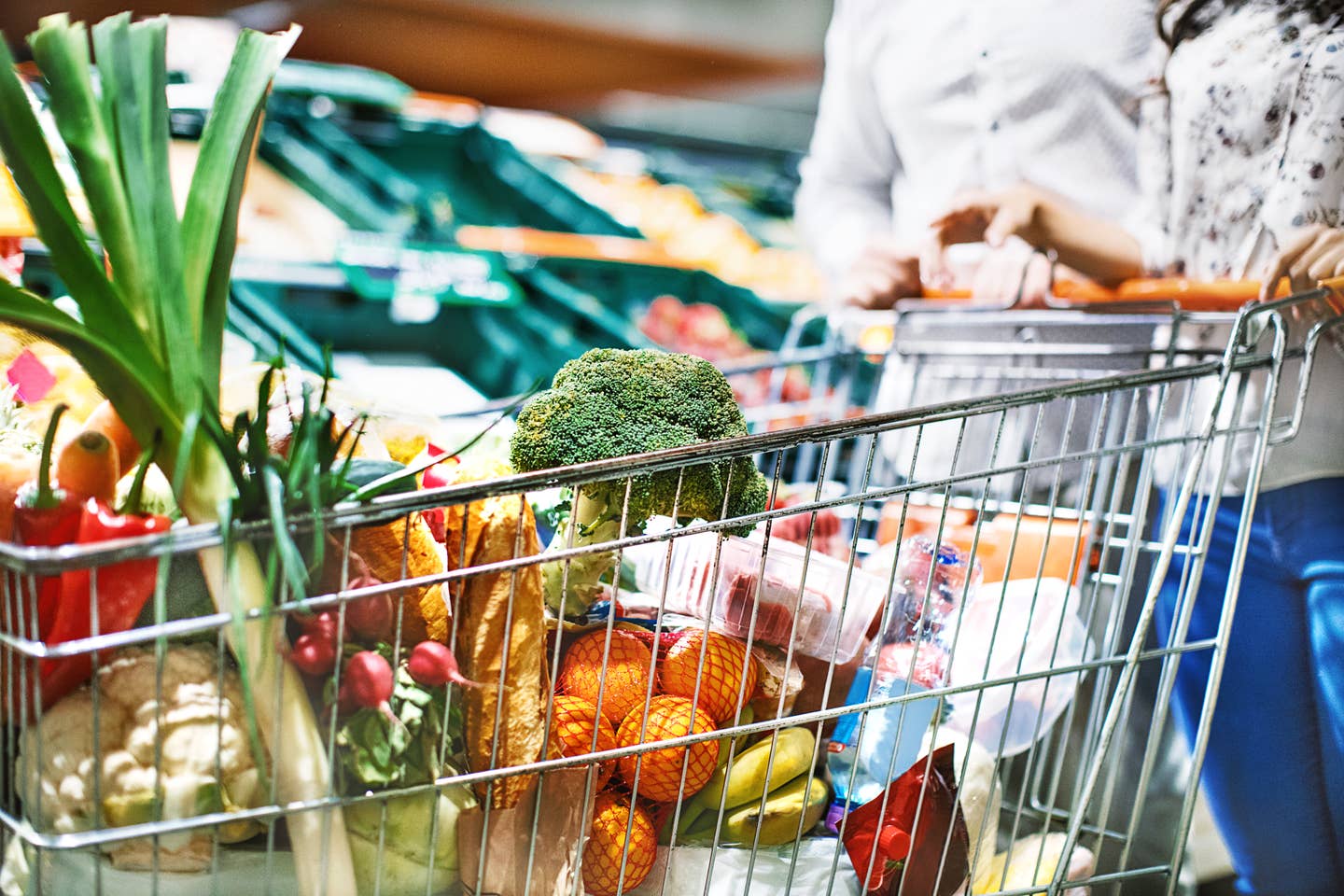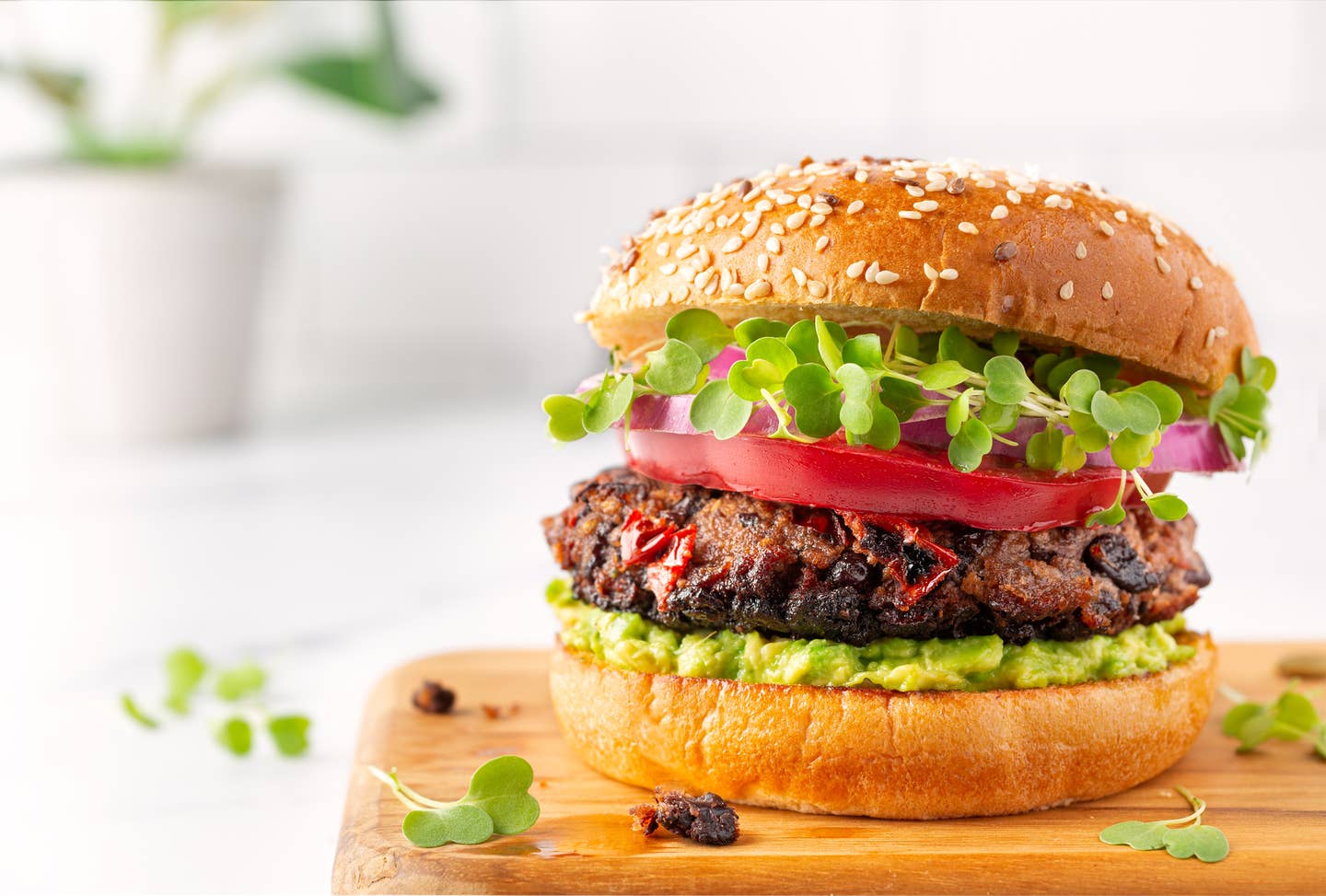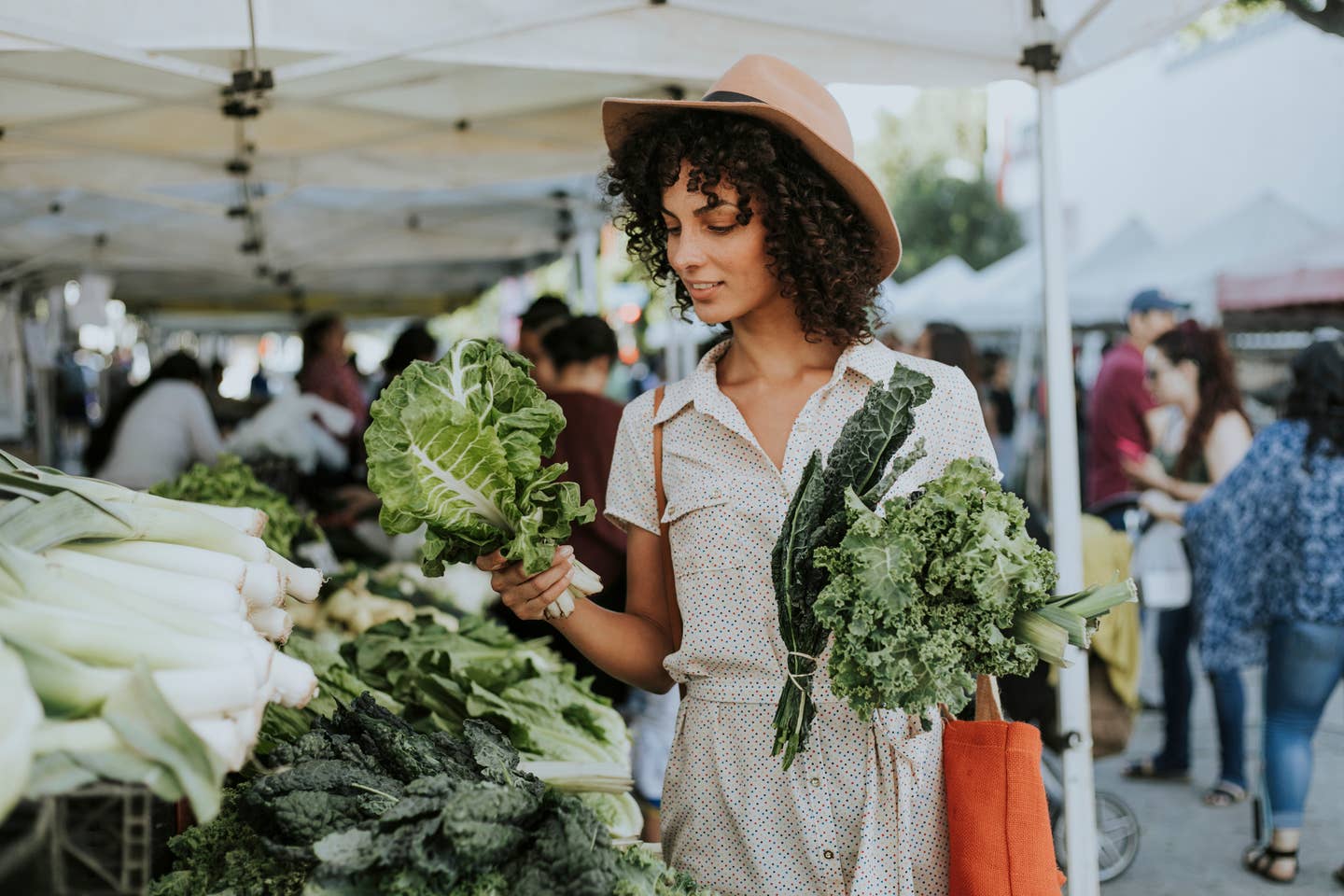
How to Save Money On a Healthy Plant-Based Diet. Take This List to the Store
Conventional wisdom tells us that a diet high in fruits and vegetables, whole grains, legumes, nuts, and seeds–aka a plant-based diet–is expensive and costs more than the traditional American diet of meat and dairy, fast or processed foods. Telling consumers to lean into a plant-based diet is often considered an elitist’s view of the world. But, upon a closer look, that seems to be untrue. When you go to the store and buy vegetables, fruit, grains, legumes, nuts, and seeds, and leave out the processed foods, meat, dairy, and anything that contains added sugar or preservatives, you are bound to save money, as much as $23 a week by one recent study. This is because produce and fresh whole ingredients (like rice, lentils, and beans) are some of the least expensive items in every market.
Several studies have shown that families will save money at the store, up to $1,260 annually, simply by switching from a meat-filled diet to a plant-based approach. Meanwhile, cutting out meat and dairy and adding more plant-based foods to your plate is known to reduce the lifetime risk of major diseases including heart disease, type two diabetes, certain cancers, obesity, and more. A recent study tells us that when consumers switch from an animal-based protein source to plant-based proteins, they lower their risk of early death significantly.
Refuting the myth that this lifestyle is more expensive is tough work, but some pretty big names are pushing plant-based to the mainstream: Just last week, Michelle Obama asked her followers to try to make better produce selections, and that she is partnering with Walmart and other retailers to make inexpensive produce available to communities that do not currently have access to fresh produce and healthier whole foods, especially in cities. Obama has made it her mission to distribute more than one million meals to food-insecure families in connection with the debut of her children’s food show on Netflix called Waffles + Mochi. Her 'Pass the Love' campaign is a collaborative campaign from the nonprofit Partnership for a Healthier America and Higher Ground Productions, founded by the Obamas.
Healthier Food Does Not Have to be Pricier
Our personal health relies on getting over the idea that produce has to be pricey. If you can't find affordable prices in your local grocery store's produce department, you can choose frozen bags of fresh vegetables and fruit, which have nearly the same nutrient profile as fresh foods do, according to Maya Feller, RD and the founder of Maya Feller Nutrition, a nutrition private practice specializing in nutrition for chronic disease prevention.
In fact, there are so many inexpensive plant-based foods that can save you money, and benefit your health and the environment. Here is exactly what to buy to save money and eat healthy on a plant-based diet. First know this: When you eat vegetables, fruit, nuts, seeds, whole grains (like oatmeal and quinoa), and legumes (like beans and lentils) these plant-based foods contain protein, calcium, fiber, antioxidants, and other vital nutrients, while being very heart healthy, Plants do not contain cholesterol, unlike animal products, and have been known to lower your risk of heart disease, stroke, cancer, hypertension, obesity, type two diabetes, and other chronic lifestyle diseases. Plant-based diets literally save lives while saving money.
These and other healthy foods are inexpensive, especially when bought in bulk, in season, on sale, or at discount stores or farmer's markets. If you can grow any food or herbs, all the better!
“The key to eating vegan on a budget is simple”, according to Melissa from The Stingy Vegan, “[just] eat whole foods that are in season, cook at home when you can, and take the time for a little bit of planning.”
Eating more plant-based foods saves on health care costs
Researchers at the University of Oxford concluded that if everyone in the US switched to vegetarianism, it would reduce healthcare costs by up to $223.6 billion a year. Worldwide, Lauren Cassani Davis writes that current meat consumption costs the world economy nearly $1.6 trillion annually, and a global switch to plant-based diets would save an estimated 8 million lives each year. The experts at the University of Oxford detailed that a widespread switch to plant-based eating would also cut environmental costs by over half a trillion dollars annually, due to animal agriculture’s role in the loss of biodiversity and climate change. Plant-based eating is not only best for your health, but it’s also best for saving money and the planet.
50 plant foods to stock up on to save money on your trips to the grocery store
- alfalfa sprouts
- bean sprouts
- beans
- beets
- bok choy
- bread (various)
- broccoli
- Brussels sprouts
- cabbage
- carrots
- cauliflower
- celery
- chayote
- chickpeas
- chili peppers
- cilantro
- collard greens
- couscous
- eggplant
- frozen veggies
- kale
- lentils
- lettuce
- mustard greens
- non-dairy milk
- oats
- okra
- onion
- parsley
- parsnip
- pasta
- peanut butter
- peas
- potatoes
- pumpkin
- rice
- rutabaga
- squash
- snap peas
- spices
- spinach
- string beans
- sunflower seeds
- sweet potatoes
- tomato sauce
- tomatoes
- turnips
- yams
- yellow squash
- zucchini
Take this list to the store and buy several items on it each week, to save money, and your health and the planet. For great ideas of what to cook, check out The Beet's library of healthy plant-based recipes, here.
Dan Brook, Ph.D., teaches in the Department of Sociology and Interdisciplinary Social Sciences at San Jose State University, is on the Board of San Francisco Veg Society and the Advisory Board of Jewish Veg, and is the author of the free Eating the Earth: The Truth About What We Eat and editor of the non-profit Justice in the Kitchen.
The Top 20 Veggies with the Most Protein
1. Soy Beans
Soybeans are a legume but they are such a great source of protein that we had to lead the veggie list with it. There is more protein in just one ounce of soybeans than a cup of sliced avocado! 1 cup equals Protein - 28.6g Calories - 298 Carbs - 17.1g Fiber - 10.3g Calcium - 175mg
2. Peas
If the pod, that peas are grown in, is split down the middle, that is an indicator they are ripe. Seeds inside the pod vary and can be green, white or yellow. 1 cup equals Protein - 8.6g Calories - 134 Carbs - 25g Fiber - 8.8g Calcium - 43.2 mg
3. Corn
Fresh corn is a great source of energy for those who like to stay active. Protein isn't all that corn has to offer. Corn provides the body with potassium and B vitamins. 1 cup equals Protein - 5.4g Calories - 177 Carbs - 123g Fiber - 4.6g Calcium - 4.9mg
4. Artichoke Hearts
Artichokes are part of the sunflower family. The fiber in artichoke hearts is great for supporting digestion. 1 cup equals Protein - 4.8g Calories - 89 Carbs - 20g Fiber - 14.4g Calcium - 35.2mg
5. Asparagus
If not properly stored, Asparagus tends to go bad quickly, To elongate freshness, put damp paper towels around the stems, or place the entire asparagus bunch in a cup of water (like flowers) to maintain freshness longer. 1 cup equals Protein - 4.4g Calories - 39.6 Carbs - 7.4g Fiber - 3.6g Calcium - 41.4mg
6. Brussel Sprouts
Brussel sprouts have more Vitamin C than an orange. If your Brussel sprouts have a rancid odor that is an indicator you overcooked them. The smell occurs because the sprouts are composed of a great amount of sulforaphane. 1 cup equals Protein - 4g Calories - 56.2 Carbs - 40g Fiber - 4g Calcium - 56.2mg
7. Broccoli
If you are trying to lose weight broccoli is a great addition to your diet because it consists of 90 water and is also high in fiber. 1 cup (chopped) equals Protein - 3.8g Calories - 54.6Carbs - 11.2g Fiber - 5.2g Calcium - 62.4mg
8. Mustard Greens
Mustard greens provide the body with tons of Vitamin A, Vitamin C, Vitamin K and fiber. Adding steamed mustard greens into your diet has been known to lower cholesterol and reduce inflammation. 1 cup equals Protein - 3.2 g Calories - 21 Carbs - 2.9g Fiber - 2.8g Calcium - 104mg
9. Avocado
Avocado is commonly mistaken as a vegetable but it is technically a fruit. This fruit had to be included in our veggie list because it isn't just tasty but super nutritious. Avocados are packed with protein but they are a great source of potassium and fiber. Avocados are a great addition to any salad, sandwich and even smoothie! 1 cup equals Protein - 3.0 g Calories - 240 Carbs - 12.8 g Fiber - 10.1g Calcium - 18 mg
Onions are an unappreciated food hero since they provide 20 percent of your daily Vitamin C and deliver an abundance of antioxidants that can reduce inflammation. 1 cup (chopped) equals Protein - 2.9g Calories - 92.4 Carbs - 21.3g Fiber - 2.9g Calcium - 46.2mg
11. Beets
The entire beetroot is edible including the leaves which contain loads of vitamin A, calcium, iron and potassium. Beetroot is high in sugar but is considered one of the most nutritious veggies used in salads and soups. 1 cup equals Protein - 2.8 g Calories - 74.8 Carbs - 17g Fiber - 3.4g Calcium - 27.2mg
12. Oyster Mushrooms
Oyster mushrooms are commonly seen in Chinese dishes. They grow best in a controlled environment indoors. Oyster mushrooms have so many nutrients to offer besides protein such as iron, calcium, zinc and folic acid. 1 cup (raw and sliced) equals Protein - 2.8g Calories - 37 Carbs - 5.6g Fiber - 2.0g Calcium - 2.6mg
13. Bok Choy
Bok Choy is a member of the mustard family. One of the oldest cultivated vegetables in the world, Bok Choy means "white vegetable” and is a great source of vitamins A, C, B6, K, and E, magnesium, potassium, iron, manganese, and calcium. 1 cup equals Protein - 2.7 g Calories - 20.4 Carbs - 3.1g Fiber - 1.7g Calcium - 158mg
14. Green Beans
Green beans are a great source of vitamins B, C and K, and minerals such as magnesium, iron and manganese. Green beans should be cooked before eating, to destroy lectins. China is the biggest grower of green beans in the world, exporting over 15 million tons a year. 1 cup equals Protein - 1.8 g Calories - 31 Carbs - 7 g Fiber - 2.7 g Calcium - 37 mg
15. Cauliflower
The most nutritious way to consume cauliflower is steamed. Don't get intimidated by orange, purple or green cauliflower. All three types have the same benefits as white cauliflower. 1 cup equals Protein - 2.2g Calories - 28.6 Carbs - 5.4g Fiber - 2.8g Calcium - 19.8mg
16. Turnip
You can eat the entire plant, root and leaves. The turnip root is high in vitamin C and the greens are high in vitamins A, C, E, B6 and K, believed to counter inflammation. Add turnip roots to soup, or mash them. Add them to salads. 1 cup equals Protein - 1.6g Calories - 28.8 Carbs - 6.3g Fiber - 5.0g Calcium - 197mg
17. Alfalfa Sprouts
Alfalfa sprouts might be little but they sure are powerful. Plus they're quick and easy to grow. They are loaded with Vitamin C, Vitamin K, Iron and more. But because they have been known to carry bacteria, make sure to fully cook alfalfa sprouts if you have a fragile immune system or are pregnant. 1 cup equals Protein - 1.3 g Calories - 8 Carbs - 0.7 g Fiber - 0.6 g Calcium - 10.6 mg
18. Tomatoes
Keep your tomatoes fresher for longer by storing them stem down. When exposed to sunlight the Vitamin C in a tomato will diminish. 1 cup equals Protein - 1.3g Calories - 26.8 Carbs - 5.8g Fiber - 1.8g Calcium - 14.9mg
19. Zucchini
Zucchini has an abundance of potassium, even more than a banana! The reason zucchini isn't high in calories is that it is made up of 95% water. 1 cup equals Protein - 1.2g Calories - 28.8 Carbs - 7.1g Fiber - 2.5g Calcium - 23.4 mg
20. Spinach
Spinach is filled with Vitamin A, Vitamin E, Vitamin K, fiber and protein. The best part about spinach is you can sauté it, blend it or eat it raw! Spinach is best grown in rainy and cool weather. 1 cup equals Protein - 0.9g Calories - 6.4 Carbs - 1.0 g Fiber - 0.6g Calcium - 27.7 mg
More From The Beet
